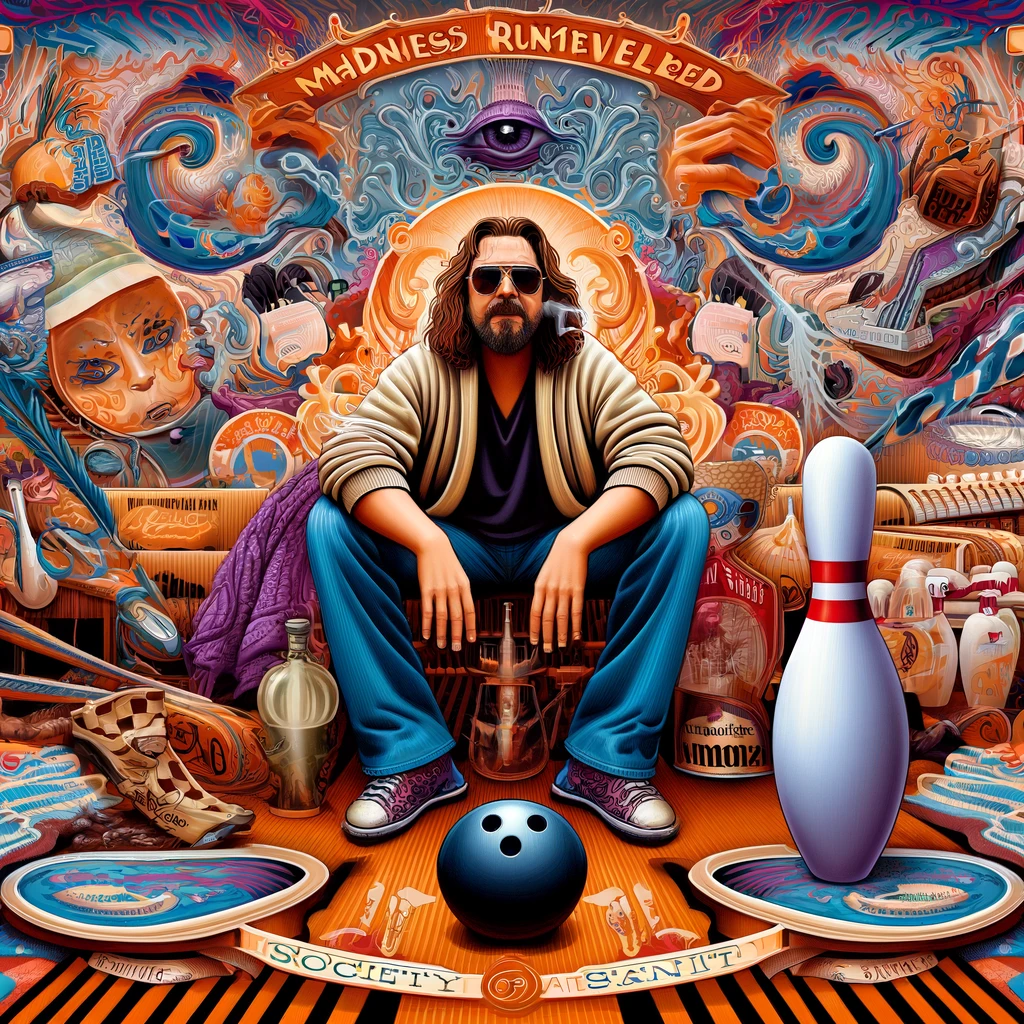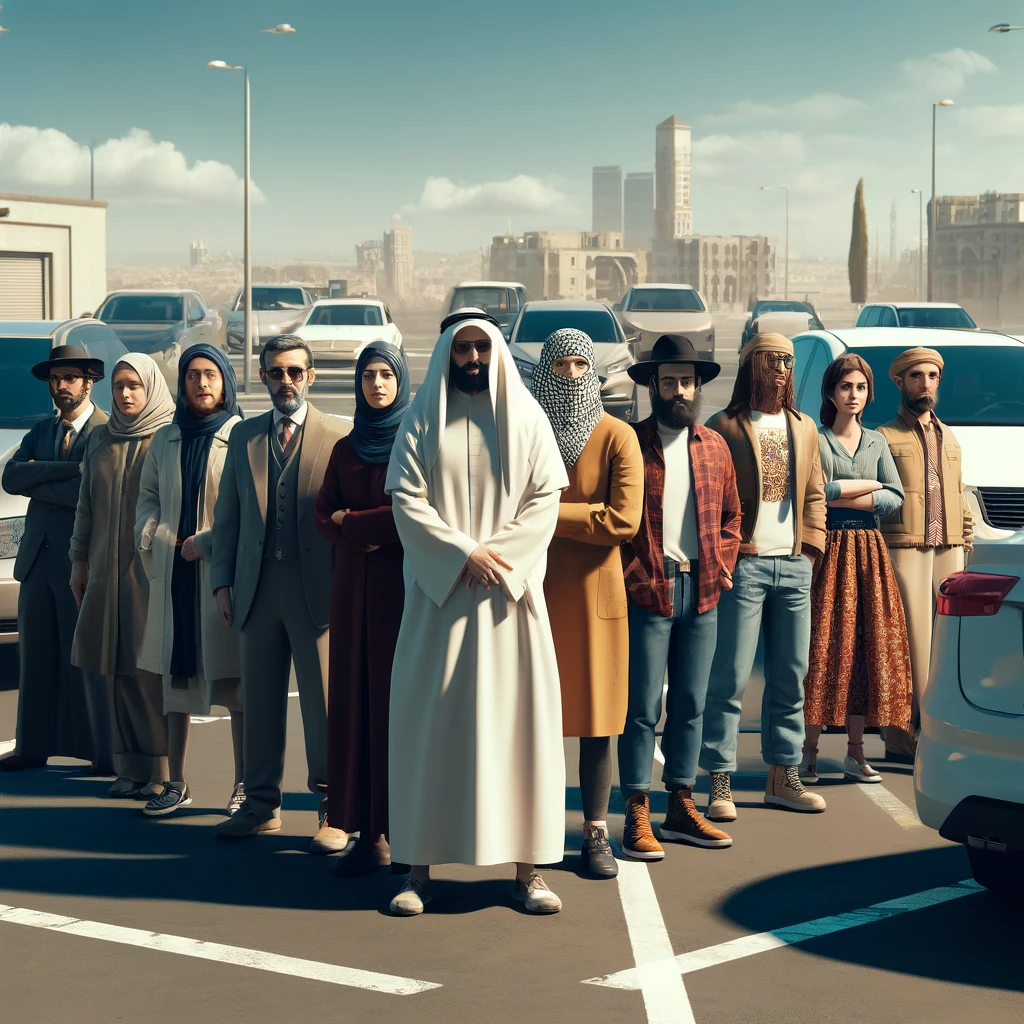
In the iconic film “The Big Lebowski,” the perception of madness is not just a fleeting theme but a profound exploration of the characters’ eccentricities and the absurdity of the situations they find themselves in. This idea of “going crazy” reflects not just a loss of mental stability, but a larger commentary on society’s norms, expectations, and the very definition of sanity.

At its core, “The Big Lebowski” thrives on the chaos generated by its characters, each of whom brings their own brand of craziness to the narrative. The protagonist, Jeff Lebowski, affectionately known as the Dude, is an easygoing, unemployed bowler who drifts through life with a laissez-faire attitude that borders on comical nihilism. His approach to life, while seemingly lazy and unstructured, actually represents a deliberate choice to reject societal pressures and live by his own rules. This choice could be perceived as madness by those who adhere strictly to societal norms, suggesting that insanity might partially be in the eye of the beholder.
The plot of the film unfolds in a series of increasingly bizarre events, triggered when two thugs mistake the Dude for a millionaire of the same name and urinate on his rug—a rug that, as the Dude repeatedly mentions, “really tied the room together.” This absurd incident sets off a chain reaction that draws the Dude and his friends, Walter and Donny, into a convoluted kidnapping plot filled with mistaken identities, ransom demands, and oddball antagonists. Each character’s reaction to these events further paints a picture of societal displacement and individual madness.
Walter Sobchak, the Dude’s best friend and bowling teammate, is a Vietnam veteran with a propensity for overreaction and aggression. His intense personality and strict interpretation of rules—even in a casual bowling league—exemplify a type of madness rooted in an inability to move past his war experiences and adapt to civilian life. Walter’s extreme behavior often exacerbates situations, leading to unnecessary conflict and further complicating the narrative. His brand of craziness, characterized by rigidity and anger, contrasts sharply with the Dude’s more laid-back craziness, creating a dynamic interplay that drives much of the film’s humor and philosophical underpinnings.
Conversely, the millionaire Jeffrey Lebowski, or the Big Lebowski, represents another facet of societal madness: the corruption and moral bankruptcy often associated with the American elite. His pretensions of philanthropy and high culture mask a deep-seated selfishness and deceit, suggesting that the real madness might lie in the pursuit of power and prestige at the expense of ethical behavior. The Big Lebowski’s actions, including his manipulation of events to benefit himself financially, reflect a madness driven by greed and a lack of empathy, which stands in stark contrast to the more benign, if unconventional, lifestyles of the Dude and his friends.
The film also delves into existential themes, using the characters’ various forms of madness to question the meaning and purpose of life. The Dude, in particular, embodies a philosophical acceptance of life’s randomness and injustices, often responding to the chaos around him with a simple “The Dude abides.” This phrase, which has become iconic, suggests a form of wisdom in his apparent madness, a deep-seated ability to maintain his identity and values despite external pressures and absurdities.
Throughout the film, the line between sanity and madness is blurred, as characters navigate a world that itself seems devoid of reason or logic. The various interactions and conflicts expose the subjective nature of sanity, with each character’s craziness serving as a mirror to their inner truths and societal critiques. The film’s enduring appeal lies in its ability to use humor and absurdity to explore these deeper themes, making the viewers question their own perceptions of normalcy and insanity.
In conclusion, the notion that “they have all gone crazy” in “The Big Lebowski” is a poignant reflection on the nature of madness itself. The film cleverly uses its characters’ eccentricities to comment on societal expectations, personal identity, and the often arbitrary standards by which sanity is judged. Through a tapestry of absurd situations and quirky dialogues, it reveals that perhaps madness is not merely a deviation from the norm, but a fundamental aspect of human existence, reflecting our deepest fears, desires, and the inherent unpredictability of life itself.
Image titled “Madness Unraveled: Society and Sanity in ‘The Big Lebowski’,” capturing the surreal and quirky essence of the film.
Image of a diverse group of Arab Jews standing outside a parking lot, beyond a car.